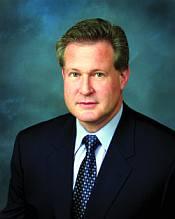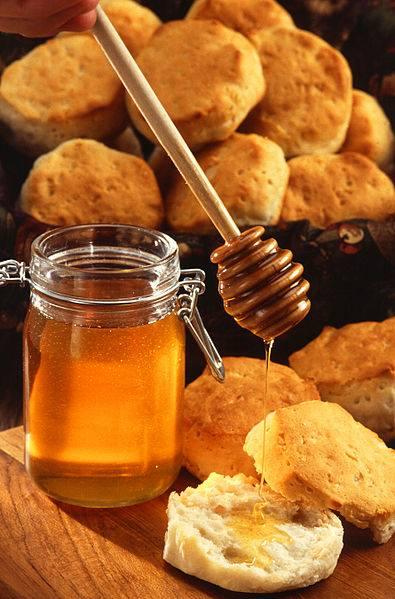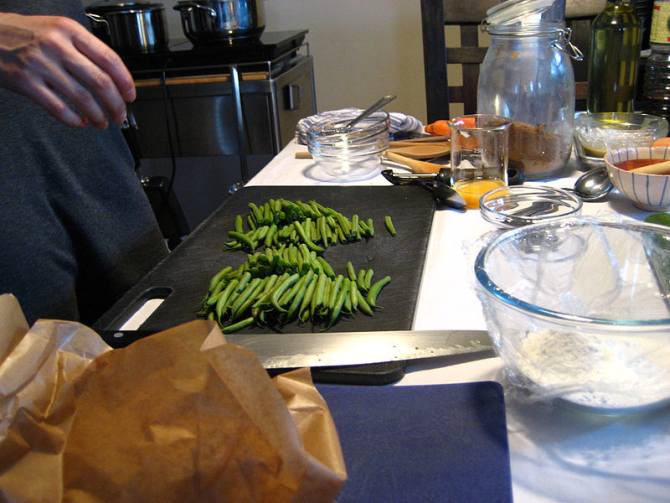 | « Back to article | Print this article |
'We need to get back to eating like our ancestors ate'
Robert H Lustig tells Vaihayasi Pande Daniel that sugar is poisoning diets the world over.
He is known as the ‘anti-sugar guy’.
In 2009 when Dr Robert H Lustig, a paediatric endocrinologist at the University of California, San Francisco, presented a hard hitting lecture titled Sugar: The Bitter Truth, as part of the university's MiniMedicalSchool for the Public series, it was uploaded on YouTube.
It became a runaway success racking up over four million hits.
That lecture examined how excessive sugar (ie fructose found commercially in sugar cane, sugar beets and corn) and too paltry amounts of fibre, in people’s diets everywhere, and this combination’s effect on insulin, has brought on the obesity epidemic.
In Fat Chance: Beating the Odds against Sugar, Processed Food, Obesity, and Disease, published in 2013, he outlined the importance of knowing that every calorie is not alike.
This book, which was a New York Times bestseller, and its sister volume The Fat Chance Cookbook, with recipes by chef/nutritionist Cindy Gershen, make a case – based on the frightening statistics world over for type 2 diabetes, lipid disorders, hypertension heart disease, cancer and dementia, even among non-obese people — for eating better and more importantly eating home-cooked food with fresh, natural ingredients.
In America, for instance, lack of homemade meals can be attributed to the fact that people have forgotten the art of cooking as they lean more and more on processed toxic food that is readily available and other such convenience foods. Future generations stand to know even less as trends show, Lustig says, that most American youngsters have not even learned how to boil water, in a microwave or on the stove.
He goes on to recall food writer Michael Pollan's dramatic statement "Don't eat food that your grandmother would not recognize as food" but suggests a variation of that statement when he says folks should concentrate on eating Real Food. He also adds that to achieve health you don’t necessarily need to become a "gym rat" but remain active.
President of the Institute for Responsible Nutrition and a member of the Obesity Task Force of the Endocrine Society, this paediatrician (who also has a law degree) has 20 years experience in grappling with childhood obesity as well as studying the consequences of too much sugar on the human body, especially the CNS.
In an e-mail interview to India Abroad’s Vaihayasi Pande Daniel, Lustig further sheds light on his food philosophy:
Click on NEXT to continue reading...
Dr Robert Lustig’s books can be purchased here:
Fat Chance: Beating the Odds Against Sugar, Processed Food, Obesity, and Disease
'If parents don't cook, how can children learn?'
Why do you feel that sugar is the worst killer?
Sugar (glucose-fructose) does three things to drive chronic metabolic disease, such as diabetes. In excess:
1. Fructose (the sweet molecule in sugar) gets turned into liver fat, which drives insulin resistance.
2. Fructose causes cellular aging seven times faster than glucose
3. Fructose tricks the brain into making you want more, driving further consumption. A little sugar is fine. A lot is not. And sugar is added to virtually all processed foods, making them impossible to avoid.

Why do you feel all calories are not created equal? Why do you suggest sweetening food with fruit as opposed to sugar?
Different foodstuffs are metabolized differently, and contribute to different diseases. Sugar is metabolized to liver fat, which drives various chronic metabolic diseases.
Given that there are so many kinds of cookbooks available what was your inspiration for writing the Fat Chance Cookbook?
In America, people have forgotten how to cook. One-third of America does not know how to cook. If parents don’t cook, how can children learn how? Every recipe in this book was vetted by high school students, to be easy and delicious and producible within a school period.
Why do you think your lecture on sugar was so popular? Why are people so interested in sugar do you feel?
Because now they see the science is there. And they see that that the food industry has not been straight with them.
Click on NEXT to continue reading...
'In India and China, people are becoming diabetic without being obese'
What are the most important highlights of a good diet to lose weight? What is your single most important piece of advice for weight loss to adults?
Insulin is the energy storage hormone. To prevent weight gain and promote weight loss, keep your insulin down. This means reducing refined carbohydrate and sugar, and increasing fibre consumption.
Diabetes is growing as a disease all over the world. India, in particular, is badly affected. What are most serious factors that have contributed to this disease becoming an epidemic?
In India and China, people are becoming diabetic without being obese. This means it is not a behaviour, but rather an exposure. Sugar is the thing that EVERYONE is now exposed to. Other possible exposures include certain environmental chemicals.
Doctors have been talking about how low-fat diets and other measures to control cholesterol have not done much to lower the incidence of heart illness. Instead there is focus on what they term injury and inflammation in our blood vessels is caused by the low fat diet recommended for years by mainstream medicine. What do you think of this suggestion? Why in your view does high amounts of heart illness continue?
Many studies now show that the fat hypothesis was incorrect. The most recent just came out this week in Annals of Internal Medicine: Association of Dietary, Circulating, and Supplement Fatty Acids With Coronary Risk: A Systematic Review and Meta-analysis.
Click on NEXT to continue reading...
'Eat REAL food. Food that came out of the ground, or animals who ate food that came out of the ground'
Many people have been influenced by books like Fast Food Nation? What is your take on processed meat (ie assembly line beef production, right from the way the cow is raised) and non free-range eggs and milk from cows bred only for milk production?
Processed meat is also a problem. High in branched-chain amino acids, which, in excess, also lead to insulin resistance. Plus the nitrates in cured meat has been associated with diabetes in some studies as well.
How does a normal, reading-thinking person make sense of the food research that hits them? The dos and don’ts can be quite confusing? Or is it more important to look at these things with just common sense and do things always in moderation?
The first thing to look at is who funded the study. If a food company funded it, don’t read it. That will reduce the confusion.
What is your single most important piece of advice for mothers about their kids’ diets.
Eat REAL food. Food that came out of the ground, or animals who ate food that came out of the ground. If it has a label, it’s been processed.
Our grandfathers and grandmothers ate healthy, homemade meals, no ingredients restricted. Can our generation afford to eat also fresh, homemade meals, with good quality natural (unprocessed) ingredients and not worry about restricting ingredients, as long as they get their quota of exercise also in. Or are there factors about modern life that prevent that?
We need to get back to eating like our ancestors ate. That will go a long way to solving this pandemic.
A calorie is NOT a calorie
Dr Robert H Lustig makes some striking and very useful points in Fat Chance: Beating the Odds against Sugar, Processed Food, Obesity, and Disease that can be summarized usefully as:
~ Being fat is not someone's fault. He says several phenomenon illustrate that, like the fact that most diet and exercise plans don’t work, children and even captive animals are getting obese and that the obesity epidemic is a global crisis.
~ A calorie is NOT a calorie. “The fact is that different calories are metabolized differently and how those calories are metabolized and where they go have everything to do with what diseases you might develop… Your body uses and stores fuel – calories – very differently depending on the quality of those calories."
~ High sugar, low fibre food increases insulin levels hugely and that in turn causes energy to be stored in fat cells in the liver and that causes tiredness, draining of energy and "diverts energy from the brain and muscles”. Energy will not be dumped into the fat cells if you do the exact reverse – ie eat high fibre, low sugar food with good proteins and whole grains invested in them. This will help you to keep weight levels at an optimum.
~ Sugar is an addiction and studies have definitively shown that. Foods from nature are never very sweet and also poisonous for the body – they do not exist in nature. There is only one way to reduce sugar in your diet — to simply avoid it. And our food has more and more sugar in it depending on how processed it is and how far away from being home cooked it is. Higher sugar in our diet results from the use of more and more processed food or processed ingredients that have hidden sugar and starches in them and no fibre.
~ Obesity is not someone’s fault nor is it a disease really. Rather than a defect of energy balancing, it is a defect of the way energy is being deposited in your body. Toxic food causes obesity that brings on every problem in the book from sleep apnea, joint diseases, psychological issues that come with being fat to those most killing diseases like diabetes, heart disease, liver disease, cancer dementia and early death. If you protect yourself from bad food you protect yourself from obesity and the diseases it brings on.
~ Insulin’s job is to tackle the energy/calories it receives and send it to the right place within the body. Insulin creates the fat if there is excess energy given to the body. So if more insulin more fat. Ingesting toxic food, that has a staggering excess load of calories, confuses the body, and mainly the hypothalamus which issues instructions on the release of insulin and on your hunger pangs.
~ Toxic food includes food with high sugar, trans fats, excess omega-6 fatty acids, alcohol, excess amino acids. On the other hand non toxic food has high fibre, omega 3 fatty acids and valuable micronutrients. It is important to avoid an excess of desserts.




